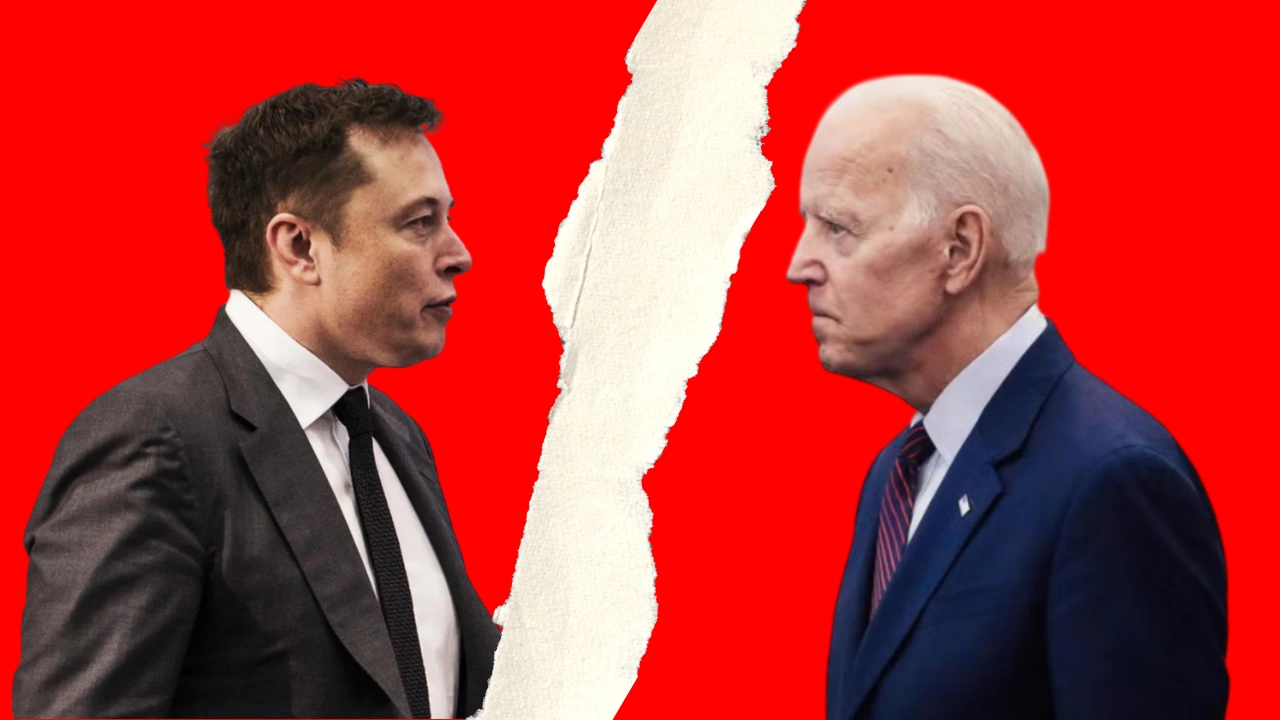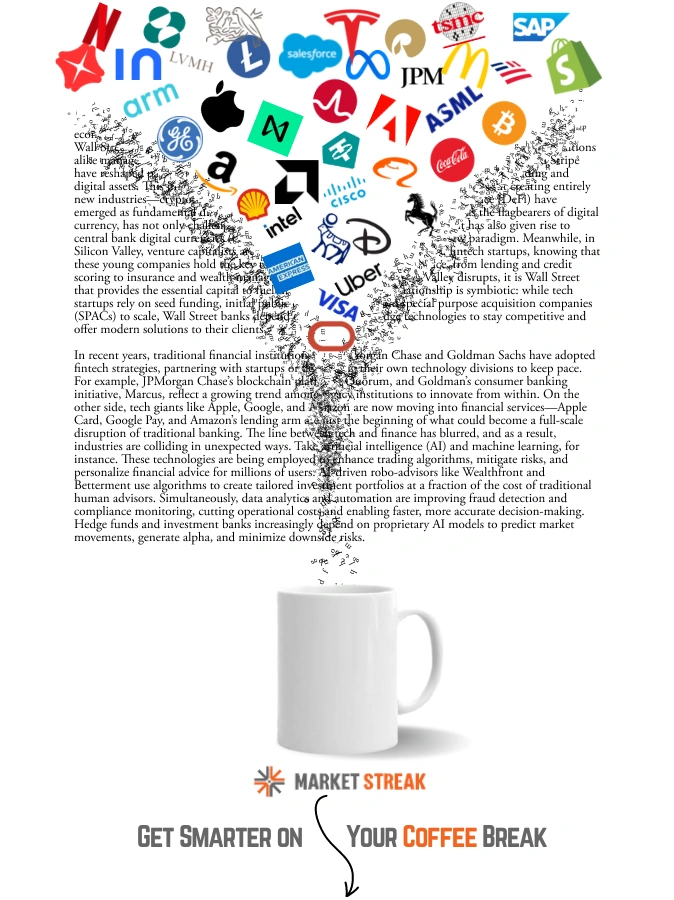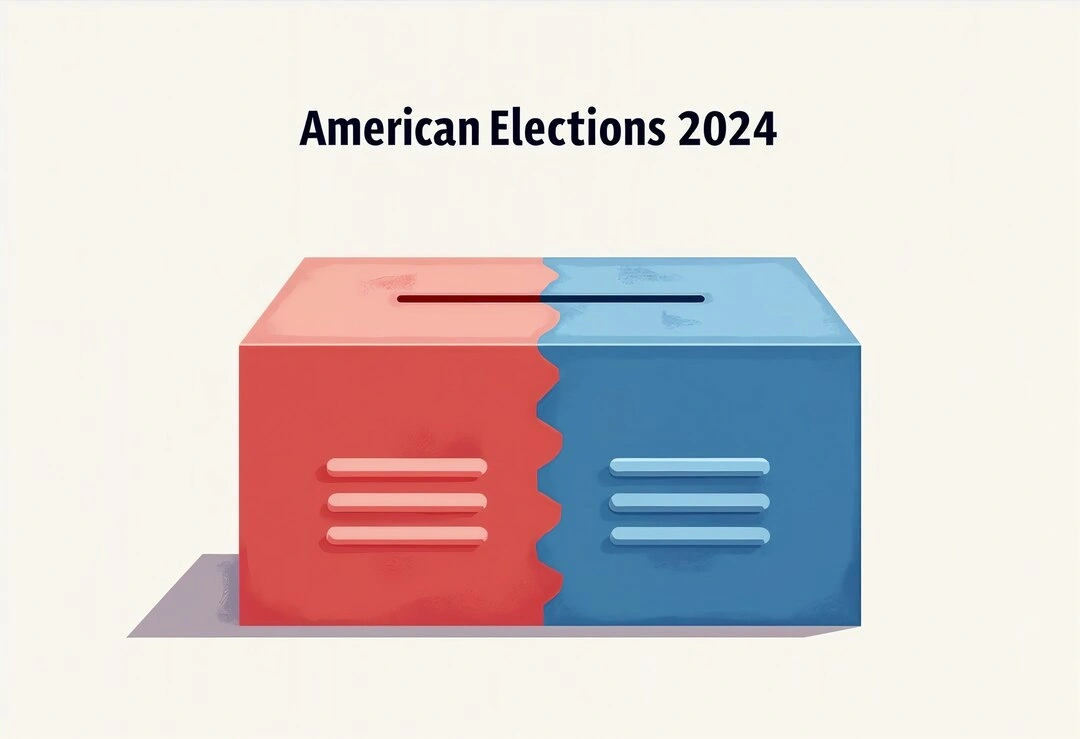Biden
Musk
Tesla
US Immigration

Biden
Musk
Tesla
US Immigration
President Joe Biden recently leveled a sharp critique at Elon Musk, accusing the Tesla CEO of hypocrisy regarding immigration policies. Biden's remarks, made during a campaign stop in Pittsburgh on Saturday, followed a report detailing Musk's alleged illegal work in the United States during his early career.
"The wealthiest man in the world turned out to be an illegal worker here," Biden stated to a crowd gathered at a union hall. "No, I'm serious. He was supposed to be in school when he came on a student visa. He wasn’t in school. He was violating the law. And he’s talking about all these illegals coming our way?"
The President's comments stem from a report published by the Washington Post, which investigated Musk's immigration status during his early years in the United States. The Post's investigation, based on company documents, statements from former business associates, and court records, paints a picture of Musk arriving in Palo Alto, California, in 1995 on a student visa for a graduate program at Stanford University. However, the report claims Musk never enrolled in classes at Stanford, choosing instead to focus on his burgeoning startup ventures.
Musk swiftly responded to Biden's accusations via a post on X (formerly Twitter), vehemently denying the President's claims. "I was in fact allowed to work in the US," Musk wrote, adding a pointed attack: "The Biden puppet is lying."
The Washington Post article further elaborates on the alleged illegality, detailing concerns among investors in Musk's early company, Zip2, regarding his immigration status. Fearing potential deportation, the investors reportedly issued Musk a deadline to secure the necessary work permits. The report also cites a 2005 email from Musk to his Tesla co-founders. This email, submitted as evidence in a now-settled California defamation lawsuit, reportedly acknowledges Musk's lack of authorization to work in the U.S. when he initially founded Zip2. The email reportedly indicated that Musk applied to Stanford specifically to maintain legal residency.
The timing of Biden's accusations carries significant political weight. The 2024 presidential election is fast approaching, and Musk, known for his significant financial contributions to Republican candidates, has openly supported Republican nominee Donald Trump. Musk has reportedly pledged over $70 million to support Trump and other GOP candidates, solidifying his position as one of the largest donors in this election cycle. Musk has actively participated in campaign events, frequently aligning himself with Trump's stringent stance on immigration. Trump, in return, has promised Musk a position within his administration should he win the election.
This incident highlights a growing clash between two prominent figures on opposite sides of the political spectrum. President Biden, representing the Democratic Party's generally more liberal approach to immigration, directly challenges Musk's actions and his public pronouncements on immigration policy. Musk's considerable financial backing of the Republican Party, coupled with his public statements, adds another layer of complexity to the ongoing national debate on immigration reform.
The implications extend beyond the immediate political fallout. The accusations against Musk raise questions about the enforcement of student visa regulations and the potential consequences for individuals who misuse such visas for purposes other than academic pursuits. The case also underscores the ongoing scrutiny faced by high-profile individuals, particularly those with considerable political influence.
While Musk maintains his innocence and refutes Biden's claims, the Washington Post's investigation raises serious questions. The report relies on multiple sources and documents, suggesting a degree of substantiation to the allegations. However, the ultimate determination of Musk's immigration status at that time rests on a comprehensive review of all relevant evidence and legal documentation. The specific details of Musk's visa status, his employment activities, and the timeline of events remain central to the ongoing debate.
The controversy has ignited a wider discussion on the responsibilities of wealthy individuals who exert considerable influence on political discourse. The exchange between Biden and Musk has highlighted the complex interplay between personal actions, political affiliations, and public perception. The President's accusations, while direct and potentially damaging to Musk's reputation, serve to highlight the larger national conversation on immigration reform and the ethical considerations for those in positions of power.
The core of the dispute rests on a seemingly simple question: Did Elon Musk work illegally in the United States in the mid-1990s? Both sides present compelling narratives, but the available evidence suggests a need for further scrutiny. The Washington Post’s report, while potentially biased due to the nature of journalistic investigations, presents documented evidence that appears to support President Biden’s accusations. Musk's response, though forceful, lacks the detailed counter-evidence needed to completely invalidate the Post's findings. The lack of an immediate response from Musk or his representatives, initially reported, further fuels the fire of public speculation and debate.
This incident is not simply a political spat; it is a complex issue with significant implications for immigration policy, the enforcement of visa regulations, and the ethical conduct of those with influence in business and politics. The full story is yet to unfold, as further investigations and potentially legal proceedings could bring more clarity to the situation. The ongoing discussion will undoubtedly continue to shape public opinion and influence the broader immigration discourse in the United States. The future may hold further revelations, legal challenges, and a deeper examination of the intersection of business success, immigration law, and political engagement.
The incident also forces a reconsideration of the role of wealth and power in influencing political narratives. Musk's significant financial contributions to the Republican Party raise concerns about the potential for such contributions to shape policy debates and influence political outcomes. The interplay between wealth, political influence, and legal compliance warrants a broader examination of the American political system and its vulnerabilities. The implications of this event may far exceed the immediate political repercussions, potentially impacting future discussions on campaign finance reform, immigration policy, and the responsibilities of high-profile individuals in the public sphere.
This case serves as a significant reminder of the transparency and accountability needed within both the business world and the political arena. The contrast between Musk's public pronouncements on immigration and his alleged past actions highlights a critical need for greater honesty and consistency in political messaging. It also underscores the crucial role of a free press in holding powerful individuals accountable. The Washington Post's investigation and subsequent reporting bring to light details that otherwise might have remained hidden from the public. Such investigative journalism is paramount in ensuring transparency and maintaining public trust.
In conclusion, the accusations leveled by President Biden against Elon Musk have ignited a controversy with potentially long-lasting repercussions. While the full truth remains elusive, the incident forces a necessary reflection on immigration policy, the responsible use of political influence, and the critical need for accountability in the business and political worlds. The coming weeks and months will likely shed further light on this evolving situation.
SHARE


news
30th October 2024

news
30th October 2024


news
30th October 2024

news
30th October 2024


news
30th October 2024


news
30th October 2024


news
30th October 2024